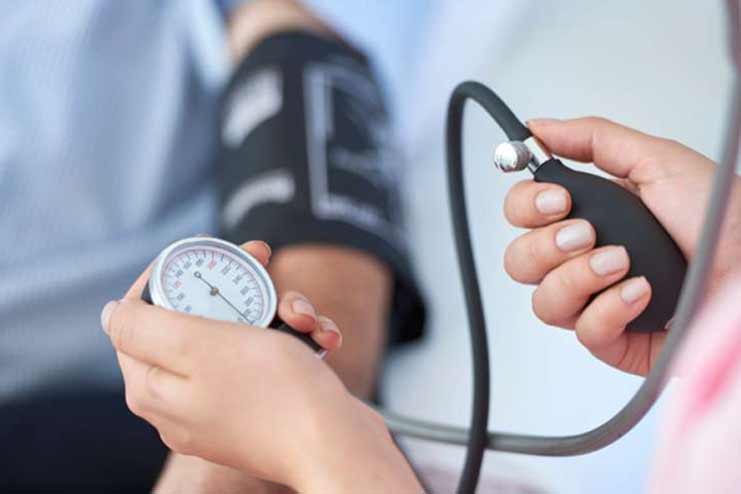Affiliate Disclaimer
Some links in this article are affiliate links. We may earn a small commission if you make a purchase through these links, at no extra cost to you. We only recommend products we find useful to our readersDiabetes and heart disease are two primary health conditions that are intricately linked, often affecting individuals simultaneously. Research consistently shows a significant association between high blood sugar levels and an increased risk of cardiovascular disease.
For those with diabetes, managing blood glucose is not just about controlling sugar levels; it’s also crucial for maintaining heart health. This connection arises because elevated blood sugar can lead to various complications, including impaired blood flow and damage to blood vessels, which in turn heightens the risk of heart disease.
According to a study, over 68% of diabetics 65 years of age or older who pass away from heart disease die of heart stroke, whereas 16% die from heart disease. Adults with diabetes have a two to four times higher risk of dying from heart disease compared to those without diabetes.
The American Heart Association considers diabetes as one of the seven major controllable risk factors of cardiovascular disease.
The Complex Link Between Diabetes, Heart Disease, and Stroke:
There is a complicated and intricate link between diabetes, heart disease, and stroke that has a significant impact on general health. People with diabetes are more prone to developing heart disease and stroke because high blood sugar raises the risk of inflammation and blood vessel damage.
This vascular damage can result in diseases such as atherosclerosis, which causes arteries to stiffen and clog, increasing the risk of heart attacks and strokes. Knowing this complex relationship emphasizes how crucial it is to control diabetes well to avert major cardiovascular events and enhance long-term health outcomes.
Risk Factors Common to Diabetes and Heart Disease:

Obesity: One of the leading risk factors for heart disease and diabetes is obesity. Extra body fat, especially around the abdomen, increases the risk of Type 2 diabetes. It also adds to insulin resistance. Furthermore, obesity increases cardiac strain and raises the risk of heart problems like coronary artery disease and heart failure.
High Blood Pressure: Diabetes patients commonly have hypertension. Over time, blood vessel damage from elevated blood pressure increases the risk of heart disease. Heart attacks and strokes are considerably more likely when these two factors are combined.
Dyslipidemia: Abnormal lipid levels, such as high LDL (bad cholesterol) and low HDL (good cholesterol), are called dyslipidemia. These lipid imbalances raise the risk of problems from diabetes and heart disease by causing plaque to accumulate in the arteries, a condition known as atherosclerosis.
Are The Risks Of Heart Disease And Stroke Higher If I Have Diabetes?
According to the American Heart Association, diabetes is considered a substantial risk factor for cardiovascular diseases (CVD), including heart attacks and strokes. Individuals with diabetes are twice as likely to have heart disease and strokes compared to those without the disease. Diabetes patients frequently have high blood pressure, unbalanced cholesterol, and obesity, all of which increase their risk of CVD.
The risk of developing heart disease and heart stroke is higher if you have diabetes because high blood sugar levels can damage blood vessels and nerves that control the heart. Over time, poorly managed diabetes leads to conditions like high blood pressure, high cholesterol, and inflammation, which increase the risk of cardiovascular issues.
Elevated blood sugar can also cause plaque buildup in the arteries, restricting blood flow and raising the chances of heart attacks and strokes. Effectively managing diabetes through blood sugar control, a balanced diet, regular exercise, and medication can reduce these risks and improve overall heart health.
Tips for Protecting Your Heart When You Have Diabetes:
Making small but consistent changes to your daily routine through healthy lifestyle choices can significantly impact your high blood sugar levels. The following are some practical tips for managing blood sugar and reducing the risk of heart disease and diabetes:
Stay Active with Daily Exercise

Engage in at least 30 minutes of aerobic exercise daily, such as walking or cycling. Begin with a few minutes of warm-up to prepare your body. The American Diabetes Association suggests avoiding prolonged periods of inactivity; try to get up and move every 30 minutes to keep your blood sugar levels balanced.
Follow a Weight Loss Plan

Obesity can be fatal for diabetics. Every pound you lose helps manage your blood pressure and blood sugar levels. Also, losing those extra pounds significantly reduces your chances of heart disease or stroke. Follow a diabetic-friendly weight loss plan to shed extra weight.
Eat a Balanced and Healthy Diet

Eat more vegetables and low-sugar fruits along with fiber. Include salads and soups in all your meals, and do not starve. It will help you manage your diabetes effectively. Avoid saturated fats, trans fats, cholesterol-laden foods, salt, junk food, fried, spicy, and other fattening foods.
Monitor Your Blood Sugar Levels Regularly

Keep track of your blood sugar levels according to the range set by your healthcare provider. Observe how different foods affect your levels, and have your blood sugar checked at least twice a year at a lab.
Maintain Healthy Cholesterol Levels

LDL (bad) cholesterol should be below 100; HDL (good) cholesterol should be above 40 or more. Monitor your cholesterol levels regularly to prevent cardiovascular issues.
Manage Your Blood Pressure

Monitor your blood pressure and consult your healthcare provider if it is above or below the normal range. Control your blood pressure by eating a healthy diet, making proper lifestyle choices, and exercising regularly.
Quit Smoking

Smoking increases the risk of heart complications and stroke. Develop a plan to quit smoking and seek assistance from your healthcare provider if needed.
Avoid Alcohol

Alcohol consumption can lead to unpredictable changes in blood sugar levels, causing them to spike or drop drastically. These sudden fluctuations can strain your heart and other organs, increasing the risk of complications. For individuals with diabetes, this unpredictability can be dangerous, as it may lead to severe health issues like heart disease or even a stroke.
To maintain stable blood sugar levels and reduce cardiovascular risks, people with diabetes need to limit or avoid alcohol consumption. Prioritizing your heart health by cutting out alcohol can make a significant difference in managing diabetes effectively.
Take Medications as Prescribed

Doctors may prescribe medicines to manage heart ailments and stroke. Stick with the prescribed drugs, and don’t miss a dose.
Conclusion
Managing diabetes effectively is crucial not just for blood sugar control but also for reducing the risk of heart-related complications. The link between diabetes, heart disease, and stroke is significant, highlighting the importance of maintaining a balanced lifestyle.
Regular exercise, a healthy diet, and consistent monitoring of blood glucose, cholesterol, and blood pressure can help manage these risks.
Additionally, quitting smoking and limiting alcohol intake are critical factors in preventing cardiovascular issues. By taking proactive steps, individuals with diabetes can protect their heart health and improve their overall well-being, leading to a longer, healthier life.
-
Nov 2018Written by Minu Manisha
-
Oct 2024Edited by Ankita
In this Article


















